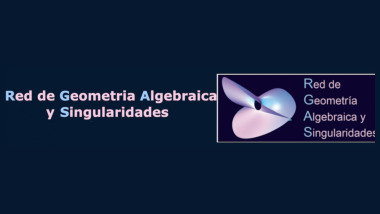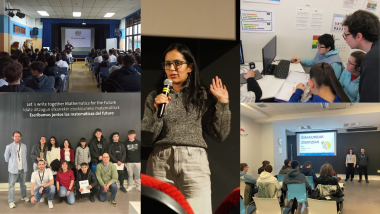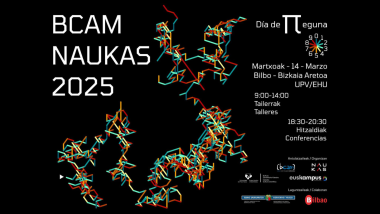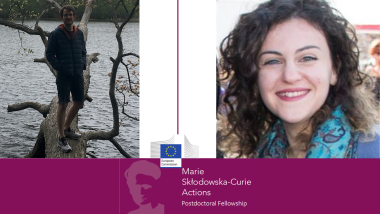The Strategic Network in Mathematics (REM) presents the first study on the socio-economic impact of mathematics in Spain
- According to the report that analyzes the mathematical intensity of the country's economy, Mathematics is directly responsible for 10% of GDP and 6% of employment
The first study measuring the “mathematical intensity” of the economy in Spain, carried out by Afi (Analistas Financieros Internacionales) on behalf of the Strategic Network in Mathematics (REM - Red Estratégica en Matemáticas), of which the Basque Center for Applied Mathematics - BCAM is part, concludes that mathematics is already directly responsible for "more than one million employed - 6% of total employment - and for more than 10% of GDP". In addition, the professions intensive in mathematics are the ones that will grow the most in the coming years. But the study also warns that the Spanish business fabric is nourished by less mathematics than that of the surrounding countries, and that, if this does not change, the Spanish economy will lose competitiveness.
Mathematics is a "strategic" good that "accelerates economic growth," says the new report, entitled The socio-economic impact of mathematical research and mathematical technology in Spain, which was presented yesterday in Madrid, with the presence of the Minister of Industry, Trade and Tourism and a broad representation of business and the mathematical research community.
Never before has the weight of mathematics in the Spanish economy been quantified, and in fact there is no standard methodology for doing so. But the promoters of the report consider it indispensable, both for industry and for public decision-makers: "Mathematics is seen as something in which a few academics do research, far from everyday reality, but the truth is that it is a strategic national resource," says Tomás Chacón, of the University of Seville and coordinator of REM, a knowledge network that integrates the entire Spanish mathematical community and seeks to promote the transfer of mathematical results to the business fabric. "Applying mathematics to all economic sectors is what is giving countries an advantage in the markets, and now, for the first time, we have the numbers to prove it," adds Chacón.
Even mathematicians declare themselves surprised in view of the conclusions of the work: "The impact of mathematics in terms of economic value and employment reaches surprising values", they write in the preface of the report. Mathematics adds value "of course in modern digital services, communications and the Internet", but its use is also expanding rapidly "in more conventional sectors". In addition, "the economic branches that use mathematics the most are the ones with the greatest productivity and growth prospects".
With this study, Spanish mathematicians have wanted to get closer to areas from which they have traditionally been distanced: business and young people. "In countries that are economically very dynamic there is much more transfer of mathematical knowledge to industry", says Guillermo Curbera, from the University of Seville, responsible for the study on behalf of REM. "We want to tell boys and girls that they can use mathematics to solve challenges in the industry and apply their intellectual power and creativity to the productive field, which is one of the richest sources of problems".
Measuring an Invisible and Unowned Resource
To carry out the study, the Afi experts were inspired by the few known precedents of similar work in other countries, specifically those carried out by Deloitte in the United Kingdom (2012) and the Netherlands (2014), and by the CMI consulting firm in France (2015). Using the same methodology as these studies has made it possible to compare the results between countries. The study carried out by Afi completed this methodology with the approach that Fundación Telefónica (2012) gave to the estimation of the economic value of the Spanish language, given the similarity between the two disciplines.
The methodology itself, and adapting it to the Spanish case, has been a challenge in itself, due to the very peculiar features of mathematics understood as a resource. Mathematics, the study explains, is special above all for three reasons: it does not belong to anyone; the more people use it, the more value it acquires; and it is almost always invisible in the final product, despite the fact that it is also ubiquitous - it is almost everywhere.
These characteristics generate market failures: "Since it is not an appropriable resource, there is no market value. National accounting systems only measure private goods, i.e. those assigned a market price. (...) The fact that mathematical research and technology transfer does not have a market value makes it difficult to measure its weight in the Spanish economy," the report states.
But difficult doesn't mean impossible. The methodology applied by Afi overcomes this obstacle by considering not the mathematics itself, but the benefits for those who possess and apply mathematical knowledge in their activities. Thus, mathematics is understood as a private good that can be quantified with the metrics in use, since the "salaries and benefits" attributable to mathematics appear in the statistical information of public institutions.
Expressed in non-technical terms, to determine these values Afi managed to measure how many mathematics Spanish workers use as a whole, and combined those data with how many mathematics contain certain products. For this purpose, it analysed the Spanish labour market using microdata from the EPA (Economically Active Population Survey) with details of up to 170 different occupations, and modulated the results with opinions obtained in personal interviews with around twenty experts in mathematical knowledge transfer, both in research centres and in private companies.
One million jobs
Its analysis reveals that the direct impact on employment reaches one million employed people, which would represent around 6% of total employment in the Spanish economy in 2016.
This figure, and the knowledge of productivity per hour in each of the 63 Economic sectors contemplated in the Economically Active Population Survey, allows us to know the GDP generated by activities with mathematical intensity: 10.1% of the total Spanish GDP in 2016.
But intensive activities in mathematics also have indirect impacts, for example on the value chain in their sector; and induced impacts -the use of income derived from intensive activities in mathematics-. If these impacts are taken into account, mathematics is behind, to a greater or lesser extent, 19.4% of the total employed in 2016, and generates 26.9% of total GDP.
The report shows that mathematics affects all sectors, in the different phases of the productive process: from the design, modeling, simulation and prototyping of products, to the optimization of productive and organizational processes and the analysis of data. By areas, however, the most intensive in mathematics are computer science, financial activities, telecommunications services and electricity and gas.
"Very far behind in mathematically intensive professions"
This data confirms the economic importance of mathematics, but places Spain behind the United Kingdom, France and Holland. If in Spain mathematics is directly responsible for 6% of total employment, in these countries the figure ranges between 10% and 11%. As for GVA, between 13% and 16% of total GDP United Kingdom, France and Holland is directly attributable to mathematics (10.1% in Spain).
This distance "does not surprise at all" the authors of the report, who attribute it to "the different composition of the productive structure of the Spanish economy" and to its "lesser competitiveness". Specifically, "Spain stands out for being far behind in professions of mathematical intensity, such as specialists in databases and computer networks, finance, information technology professionals or software and multimedia designers".
According to Eurostat, in Spain around 30% of occupations are intensive in mathematics, while the average for the European Union-15 is 40%. This is not very good news for the future, because according to the European Union agency Cedefop (European Centre for the Development of Vocational Training), the growth forecasts for intensive occupations in mathematics between 2015 and 2025 are lower for Spain (0.47% per year) than for the Europe of 15 (0.59% per year), "which would widen the current gap," says the report. "This is despite the fact that employment growth prospects for these professions are more than double those of other occupations".
More mathematical training, more growth
The study is completed by looking at other informative indicators of the relationship between mathematics and economics, such as the number of scientific publications in the area of mathematical research, or the number of graduates in science and technology careers (STEM). An analysis of 66 countries finds "significant positive effects of these indicators on worker productivity," the report says.
Specifically, it is estimated that "if Spain were to increase the proportion of STEM graduates over the total population to the same level as in France, labour productivity could increase by 2.2% over current values".
The report concludes with public policy recommendations aimed at the field of education, mathematicians themselves and economic and R&D&I managers: more mathematics in educational programmes; more understanding by mathematicians of the applicability of their knowledge; bringing mathematical research centres closer to the business fabric; boosting spending on R&D&I in mathematical sciences; increasing incentives for applied mathematics; and making the advantages of incorporating mathematicians visible in the business environment.
- More details about the report availiable at the REM website (in Spanish).
Related news
Zentroari buruz




